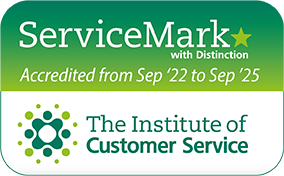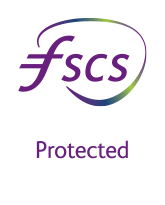If you have received an e-mail asking you to complete a survey from the ICS, please click here to read more about this request.
Regardless of Covid-19, 44% of homeowners in 2020 decided to remortgage their home.
While 56% decided to make use of the temporary stamp duty holiday and move, remortgaging remained a viable option for those who wanted to stay put but save some money by moving to a cheaper deal.
If you're one of the 5 million choosing to be their own boss, remortgaging needn't be difficult as long as you are clued up on the facts.
If you are contemplating remortgaging, we’ve outlined key things to consider and the documentation you will need to provide for the process to run smoothly, whether you are employed, self-employed or a contractor.
Self-employed and looking to remortgage
When considering remortgaging, there are three details to check on your current mortgage:
Is there an early repayment charge?
Most, but not all, mortgages have an early repayment charge (ERC), and some may have extended financial penalties after the deal ends. Determine if there is a charge, how much it is, and
what date it applies to. With this information, you can work out if it’s worth paying the charge in comparison to the savings you will make on your new mortgage.
Is there an exit or admin fee?
Check if you need to pay an exit fee to move from your current mortgage. Not only this, you may have to pay an administration fee for releasing the deeds to your solicitor. This can typically range from £50 to £200.
How much is owed on your current mortgage?
Find out how much you owe to your current lender, your mortgage term and repayment method (capital and interest or interest only) – your lender will be able to provide you with this information. If you’re looking to switch, don’t be tempted to estimate how much you owe, make sure you gather the figures required to clear the mortgage on a set date. Having a set date means it will take into account any normal repayments you are due between now and then. Relying on an estimate may create a shortfall which you’ll need to pay additionally.
Get your paperwork in order
Remortgaging doesn’t necessarily involve a heavy paper trail, but there are a number of documents you will need to provide before the remortgaging process can start. Typically, you will need proof of income, bank statements and bonuses or commission, as well as your latest P60 tax form and, if you’re a sole trader, a SA302 tax return. All must be at least two years in date, but three would be preferred by the majority of lenders.
I’m self-employed, can I still remortgage?
If you’re self-employed, you will need to prove your income, usually at least two years of accounts. This is done through the following formats:
- Business accounts: You want to be able to show at least two years’ worth of accounts – three would be preferable. Most lenders will require the paperwork to be signed off by a chartered or certified accountant
- Tax returns: If you can’t show any business accounts, then at least two years’ tax returns are the next best option. You will be assessed on profits, rather than turnover
- Contracts: If you are a contractor, you will need to provide your current contract and employment history
We can call you back to arrange an appointment. Our mortgage appointments are available by video call or by phone.
*all figures and data correct as of March 2021
YOUR MORTGAGE IS SECURED ON YOUR HOME. THINK CAREFULLY BEFORE SECURING OTHER DEBTS AGAINST YOUR HOME. YOUR HOME MAY BE REPOSSESSED IF YOU DO NOT KEEP UP REPLAYMENTS ON YOUR MORTGAGE.







